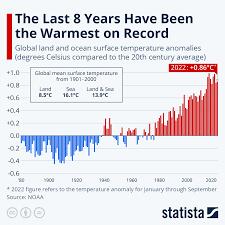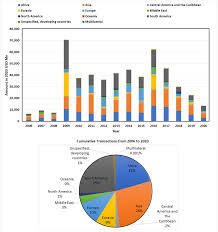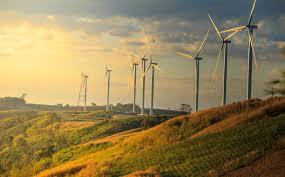-
 @ Jax
2024-12-07 13:37:03
@ Jax
2024-12-07 13:37:03 Introduction
Climate change is one of the most pressing issues of our time, with far-reaching consequences for the environment, human health, and the economy. From rising sea levels to devastating natural disasters, climate change is having a profound impact on global economies. In this article, we will explore the financial implications of climate change and what it means for investors, businesses, and governments.
Introduction
Climate change is one of the most pressing issues of our time, with far-reaching consequences for the environment, human health, and the economy. From rising sea levels to devastating natural disasters, climate change is having a profound impact on global economies. In this article, we will explore the financial implications of climate change and what it means for investors, businesses, and governments.
 The Economic Costs of Climate Change
Climate change is already having a significant impact on the global economy. According to a report by the Intergovernmental Panel on Climate Change (IPCC), the economic costs of climate change could reach $54 trillion by 2100 if left unchecked. This includes costs such as:
- Damage to infrastructure and property from extreme weather events
- Losses in agricultural productivity and food security
- Impacts on human health and well-being
The Economic Costs of Climate Change
Climate change is already having a significant impact on the global economy. According to a report by the Intergovernmental Panel on Climate Change (IPCC), the economic costs of climate change could reach $54 trillion by 2100 if left unchecked. This includes costs such as:
- Damage to infrastructure and property from extreme weather events
- Losses in agricultural productivity and food security
- Impacts on human health and well-being
 The Financial Risks of Climate Change
Climate change poses significant financial risks to investors, businesses, and governments. These risks include:
- Stranded assets: investments in fossil fuels and other carbon-intensive industries that may become obsolete as the world transitions to a low-carbon economy
- Physical risks: damage to infrastructure and property from extreme weather events
- Transition risks: the financial impacts of transitioning to a low-carbon economy, including the costs of investing in new technologies and infrastructure
The Financial Risks of Climate Change
Climate change poses significant financial risks to investors, businesses, and governments. These risks include:
- Stranded assets: investments in fossil fuels and other carbon-intensive industries that may become obsolete as the world transitions to a low-carbon economy
- Physical risks: damage to infrastructure and property from extreme weather events
- Transition risks: the financial impacts of transitioning to a low-carbon economy, including the costs of investing in new technologies and infrastructure
 Opportunities for Sustainable Investing
Despite the financial risks posed by climate change, there are also opportunities for sustainable investing. Investing in renewable energy, energy efficiency, and sustainable infrastructure can provide attractive returns while also supporting the transition to a low-carbon economy.
Opportunities for Sustainable Investing
Despite the financial risks posed by climate change, there are also opportunities for sustainable investing. Investing in renewable energy, energy efficiency, and sustainable infrastructure can provide attractive returns while also supporting the transition to a low-carbon economy.
 Conclusion
Climate change is having a profound impact on global economies, with significant financial implications for investors, businesses, and governments. However, there are also opportunities for sustainable investing and supporting the transition to a low-carbon economy. As the world continues to grapple with the challenges of climate change, it is essential that we prioritize sustainable investing and support the development of a low-carbon economy.
Conclusion
Climate change is having a profound impact on global economies, with significant financial implications for investors, businesses, and governments. However, there are also opportunities for sustainable investing and supporting the transition to a low-carbon economy. As the world continues to grapple with the challenges of climate change, it is essential that we prioritize sustainable investing and support the development of a low-carbon economy.Statistics: - The economic costs of climate change could reach $54 trillion by 2100 if left unchecked. (Source: IPCC) - Renewable energy investments reached $1.3 trillion in 2020, up from $60 billion in 2004. (Source: BloombergNEF) - Sustainable investing assets under management reached $30.7 trillion in 2020, up from $13.3 trillion in 2012. (Source: Global Sustainable Investment Alliance)
Sources: - "Climate Change 2014: Impacts, Vulnerability, and Adaptation" by IPCC - "New Energy Outlook 2020" by BloombergNEF - "Global Sustainable Investment Review 2020" by Global Sustainable Investment Alliance